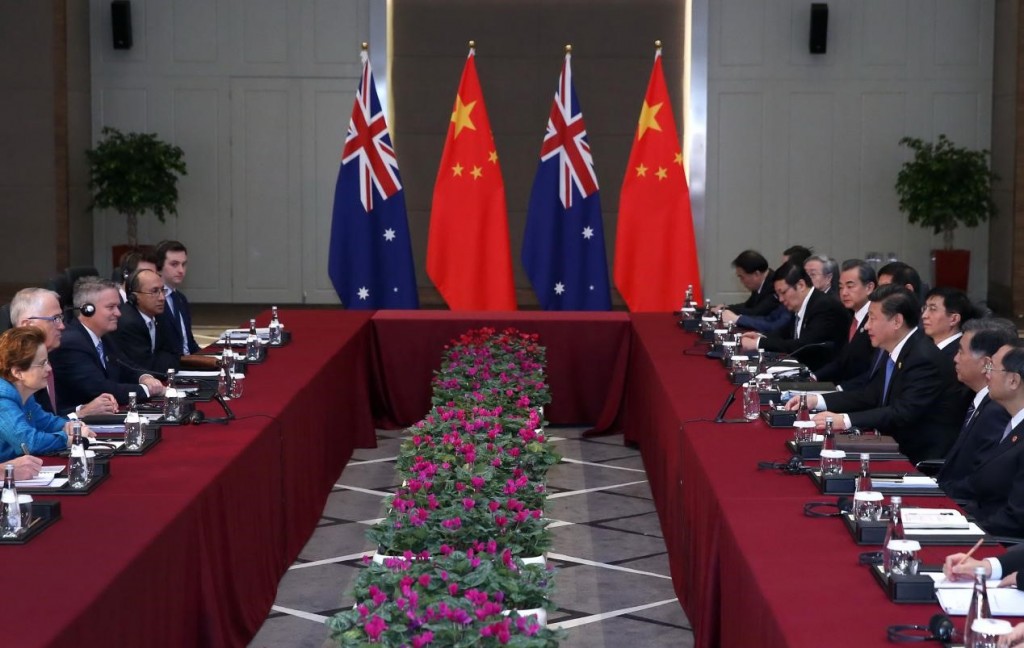New Zealand Prime Minister John Key on Monday expressed optimism about China’s economic transition, saying the growth of the Chinese economy is still very considerable.
The Chinese leadership has many options to guide the world’s second largest economy through its transition. said Key, who is on an official visit to China.
STILL GOING STRONG
“China’s economy has been growing rapidly for 20 to 30 years, but on a much smaller base,” Key said during a conversation with Chinese entrepreneurs in Beijing, noting that although growth rate has slowed, it is “on a much, much higher base, so the economic growth each year is still very considerable.”
According to China’s National Bureau of Statistics, the Chinese economy grew 6.7 percent year on year in the first quarter, narrowing from the previous quarter’s 6.8 percent, but in line with market expectations and remained within the government’s targeted range of between 6.5 and 7 percent for 2016.
“I think what you’ve seen in the Chinese economy,” said Key, is “the transition and the make-up of the economy from much export-oriented to much more import, services-based economy.”
He added that he believed the Chinese banking system, which is facing some stress, is still strong and robust.
According to the Chinese government, services sector has expanded to 56.9 percent of the Chinese economy.
Key is upbeat about China’s transition from a “heavy industrialized, manufacturing base” to a “far more knowledge-based, services-based economy, where it’s more based on internal consumption.”
He believed that the Chinese leadership has at its disposal a wide range of options to allow the economy to transition through the change.
“You need just give it some time,” said Key.
Key made the remarks during a luncheon hosted by China Entrepreneur Club with Chinese business leaders, including Alibaba founder Jack Ma, Lenovo founder Liu Chuanzhi, and some 70 others.
A VERY LONG-TERM PLAYER
Key, who has brought a 40-person business delegation with him with an eye to further tapping into the Chinese market, said New Zealand is interested in becoming a “very long-term player in China.”
“Since the signing of the free trade agreement between New Zealand and China in 2008, the commercial activities between our two countries are going from strength to strength,” said Key, adding that New Zealand has sold a great deal of food and base products to China, and is increasingly more active in the services sector.
According to New Zealand press reports, exports of goods to China account for 15 percent of New Zealand’s total exports of goods. More than a fifth of all the country’s dairy export dollars earned are from China. Growth in goods exports to China also accounted for more than 50 percent of the growth in New Zealand’s total exports in 2007-2012.
Jiang Sheng, general manager of Sino-Europe project at Zhisland, a networking site for business leaders affiliated with China Entrepreneur Club, which hosted the prime minister, commented that the New Zealand side is not only eyeing the Chinese market, but is also interested in investment opportunities and bringing Chinese investment to New Zealand.
“There are enormous opportunities in each others’ market for foreign direct investment. We have seen China growing rapidly as an investor in a great many sectors in New Zealand,” said Key.
The prime minister is also excited about how China’s online retail platforms are bringing products into households across the China, saying “when we look at platforms like Alibaba, it represents the ultimate opportunity to bring products and services from New Zealand directly to a platforms of consumers here in China.”
27 TONS OF HONEY AND 50,000 OYSTERS
The urge to promote trade and cooperation is by no means one-way. In a Q&A session with the prime minister, Alibaba founder Jack Ma said New Zealand products are enjoying huge success in China, and in one week of promotion last year, Tmall, an online retail platform of Alibaba, sold over 27 tons of honey and 50,000 oysters, 72 hours from ocean to plate, directly from New Zealand.
“My family has bought a lot of oysters and scampis” from New Zealand, Ma told reporters about what he has bought.
“New Zealand is a very unique country,” Ma said in a keynote speech at the luncheon, noting that he is enthusiastic not only about bringing healthy New Zealand food products to China, but also trying to bring the country’s environment protection technology and ideas to China.
“Chinese people buy products from New Zealand. They are actually buying fresh air, water and soil from there, and share its wholesomeness,” said Ma.
After the luncheon, Alibaba signed an MoU with the New Zealand side to deepen bilateral cooperation.
